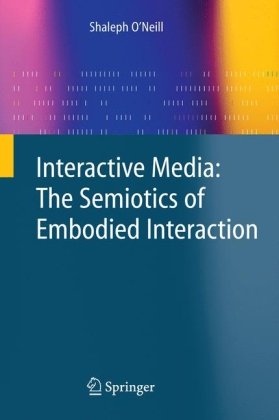

Most ebook files are in PDF format, so you can easily read them using various software such as Foxit Reader or directly on the Google Chrome browser.
Some ebook files are released by publishers in other formats such as .awz, .mobi, .epub, .fb2, etc. You may need to install specific software to read these formats on mobile/PC, such as Calibre.
Please read the tutorial at this link: https://ebookbell.com/faq
We offer FREE conversion to the popular formats you request; however, this may take some time. Therefore, right after payment, please email us, and we will try to provide the service as quickly as possible.
For some exceptional file formats or broken links (if any), please refrain from opening any disputes. Instead, email us first, and we will try to assist within a maximum of 6 hours.
EbookBell Team

5.0
110 reviewsInteractive media is pervasive. The colonization of our everyday lives by the computational power of the silicon chip is a fundamental feature of our digital age, and raises important questions such as: What does this mean for us as inhabitants of such media rich environments? How can we make sense of these media and the ways in which they have changed our interactions? What theories can we draw on to help us make sense of life in the digital age?
Human Computer Interaction has been looking at versions of these questions for a long time now, but as technology advances so quickly it is hard to keep pace with the changes. In reflecting on some of these issues and by providing a way to relate some of the disparate threads of theory from fields such as phenomenology, cognitive science, semiotics and the ecological theory of perception, Shaleph O’Neill provides an exploration of the theories that impact our understanding over a spectrum of interactive media.
Dr. Shaleph O’Neill is Course Director of Interactive Media Design at the University of Dundee.